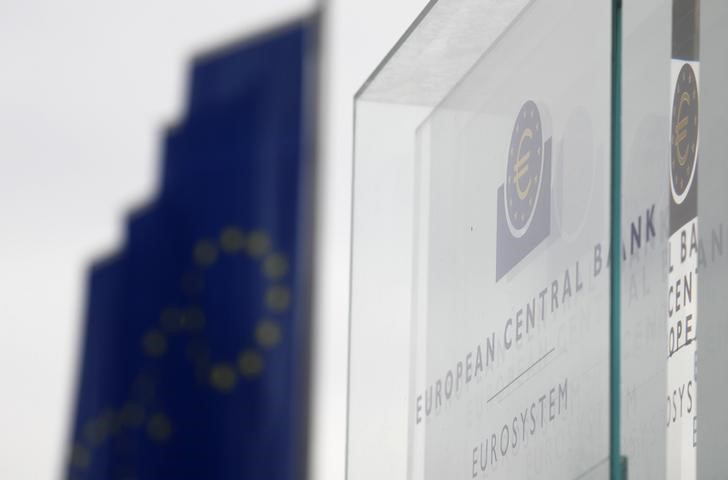(Bloomberg) -- The European Central Bank revised its guidance on when interest rates might rise, saying it will persist with ultra-loose monetary stimulus until it has solid evidence that it can sustainably hit its new inflation goal.
In the first policy meeting since concluding an 18-month strategy review, the Governing Council said it expects the key rates to remain at their present or lower levels until it sees inflation reaching 2% “well ahead of the end of its projection horizon, and durably for the rest of the projection horizon.”
The ECB publishes inflation projections as far as three years ahead, and currently foresees price growth averaging just 1.4% in 2023. That suggests any rate hike is years away.
The Governing Council also said it’ll wait until it judges that underlying price pressures will support headline inflation stabilizing at 2% over the medium term, and said that may imply “a transitory period in which inflation is moderately above target.”
What Bloomberg Economics Says
“Other things being equal, we view this new guidance to be consistent with the ECB delaying the start of its normalization process for 12 to 18 months.”
-David Powell and Maeva Cousin. To read their report, click here.
The revised guidance cements a new strategy concluded two weeks ago, in which the ECB increased the inflation target from just-under 2% and acknowledged that it may overshoot. It also vowed to consider factors such as climate change and housing costs in policy.
Officials are showing that they’re determined not to reduce support prematurely. The previous guidance had said settings would remain loose until the inflation outlook was “sufficiently close to, but below, 2%.”
Current tools were kept unchanged:
- The deposit rate stayed at -0.5%
- The 1.85 trillion-euro ($2.2 trillion) pandemic bond-buying program will continue at an elevated pace, with a scheduled end date of March 2022
- The older Asset Purchase Program stays at 20 billion euros a month
- The ECB will keep providing long-term loans to banks
The euro briefly rose 0.1% on the announcement, and was little changed at $1.1791 at at 1:56 p.m. Frankfurt time.
President Christine Lagarde will hold a virtual press conference at 2:30 p.m. to explain the decision. She’ll debut a revamped format for her opening statement, saying it’ll be “more narrative-based, and more concise.”
The ECB’s promise of continued ultra-loose policy sets it apart from some of the world’s biggest central banks. In the U.S., where inflation is running above 5%, Federal Reserve officials are already discussing when to start tapering their stimulus. Some policy makers at the Bank of England have said a reduction in bond buying should be considered soon.
The strategy review, the first in 18 years, addressed the ECB’s decade-long struggle to stoke price growth in the euro area, as well as topics such as climate change, inequality and digitization. It concluded that when interest rates are almost as low as they can effectively go -- as now -- policy needs to be “especially forceful or persistent” and may imply a “transitory period in which inflation is moderately above target.”
Still, the review comes just as the currency bloc and much of the rest of the world are hit by accelerating inflation, driven by booming demand and constrained supply as coronavirus restrictions are withdrawn. While the ECB predicts euro-area price growth will fall back below target next year as the economy rebalances, some policy makers have signaled concern that inflation expectations may become entrenched at too high a level.
The Governing Council will face some key decisions after the summer, when it’ll have to start considering how and when to wind down the pandemic purchase program and what should replace it. Economists expect buying to slow in the fourth quarter.
That debate could be complicated by the spread of the delta variant of the coronavirus. Cases are on the rise in countries including the Netherlands and Spain, raising the risk of new travel curbs that would hit the bloc’s tourism-dependent south hardest.
©2021 Bloomberg L.P.
